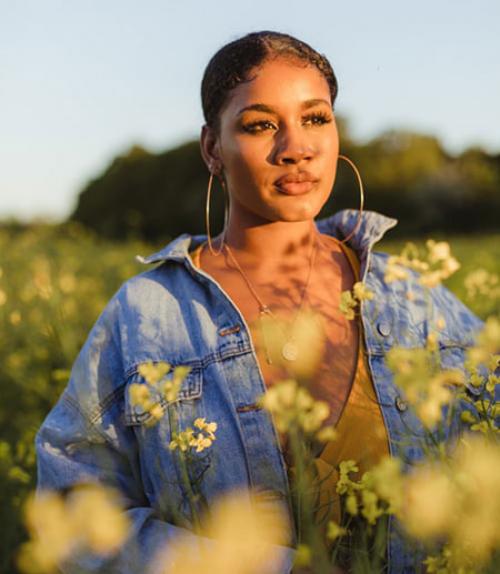This is an episode from the “What Makes Us Human?” podcast's fifth season, "What Do We Know about Inequality?" from Cornell University’s College of Arts & Sciences, showcasing the newest thinking from across the disciplines about inequality. Featuring audio essays written and recorded by Cornell faculty, the series releases a new episode each Thursday through the fall semester.
The lived experience of inequality is baked into Western modernity, as scholars of the global black experience have concluded. One way this is experienced, as described by psychiatrist and cultural theorist Franz Fanon in “The Lived Experience of Blackness,” is through the process of “interpellation,” when someone is hailed in a particular way that fixes that person into a subordinated racial and/or gendered identity. But this, he demonstrates, also provides the impetus for resilience and resistance.
From the 15th century onward, European capitalism created exploitative economic systems in which European ethnic minorities asserted global ascendancy over those they defined as racialized others. These European settler colonies dominated peoples around the world by creating racial hierarchies, often violently imposing their own models in numerous cultural, social and political spheres.
Caribbean scholar Sylvia Wynter describes how European men of certain classes defined themselves as the only humans, in opposition to people they cast as “others.” Each of these "others," then, had to struggle to reclaim their humanity within a new larger economic construct. For Caribbean and Latin American scholars, Shakespeare’s "The Tempest" is a good literary example. Caliban is categorized as the native, savage brute by Miranda, the white woman, both representative and participant in the colonial project, and by her father Prospero, the European who now controls the island. Caliban thus functions as the representation of the dispossessed native African and indigenous subject. Caliban’s mate, the native black woman, remains absent. Caliban has no imagined future descendants as the “master population” asserts control.
For Black women, inequalities exist simultaneously – Black women are gendered, raced, classed and sexualized. Still, the remedies lie not in simply gaining equality in oppression but in actually working to create societies which do not normalize gender, racial, class and heteronormative inequalities.
Writers like Toni Morrison consistently challenged the erasure of the actual and symbolic black girl and deliberately brings her back as the center of her own experience in every work. Paule Marshall and Audre Lorde claimed as well the multiple layers of black women’s experience in the Americas, and current writers like Chimamanda Adichie tell the story of the African woman as she confronts these inequities of race, class, gender, origin and, yes, her immigrant experience, as does one of our own Cornell graduates, NoViolet Bulawayo, in her prize-winning "We Need New Names":
"When things fall apart, the children of the land scurry and scatter like birds escaping a burning sky. They flee their own wretched land so their hunger may be pacified in foreign lands, their tears wiped away in strange lands, the wounds of their despair bandaged in faraway lands, their blistered prayers muttered in the darkness of queer lands."
The capacity for resilience and resistance has animated black cultures everywhere and ensured both continuity and transformation. Cultural resilience is the spine of the black experience, the supportive apparatus that allows resistance to the inequality that is a global problem. This resistance has been political, cultural, social, and organizational. It includes documented physical resistance during and in the process of enslavement; on ships, on plantations and in post emancipation North and South America.
Contemporary realities reveal the series of inequalities which Western modernity used to advance itself via transatlantic slavery from the 15th century up to the present. These also prompt a recurring conversation about reparations, which unlike past framings within economic paradigms and market objectives, now turn on a range of repairs, including the envisioning of new ways of being, creating new cultures, and new communities.
Photo by Humphrey Muleba on Unsplash




